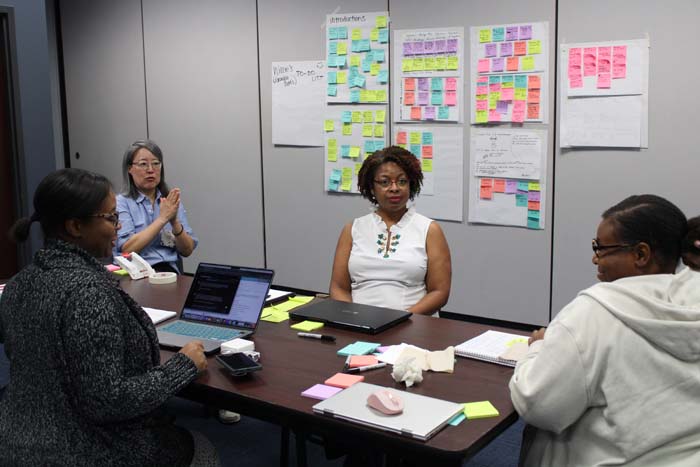SRTC hosts workshops on AI manufacturing in partnership with Georgia AIM
Published 12:43 pm Friday, July 21, 2023

- DISCUSSING THE BASICS OF AI: Local educators alongside SRTC and Georgia Tech representatives at the AI manufacturing workshops.
THOMASVILLE- Last week, the Thomasville campus of Southern Regional Technical College held Innovation and Entrepreneurship for Educators workshops alongside the Georgia AIM grant team for K-12 educators from the surrounding area.
Danyelle Larkin, educational outreach manager at Georgia Tech, said that the workshop was just the first step in preparing Georgia for the AI manufacturing jobs coming to Georgia or the ones that are already here.
“Georgia Tech has received a grant called Georgia Artificial Intelligence Manufacturing Technology Corridor and through this grant, we were awarded $65 million that has been spread across Georgia to answer the AI and manufacturing needs of Georgia and to also fill in the workforce that is needed to handle the AI manufacturing jobs that are in Georgia or coming to Georgia,” she said.
By working with educators, Larkin said, they hope to build a K-12 education pathway that will provide insights into the needs of the local community and the steps they can take today and in the future in their community and careers.
“The last few days, this week we’ve spent with educators in Thomasville, Ga, and Mitchell County and surrounding counties, to develop a K-12 education pathway to help students identify jobs that are in their local community that surround artificial intelligence and manufacturing,” Larkin said. “It is our hope and goal that through this workshop that students and educators begin to identify things that they can do today and in the future to assist their community and their future careers.”
While the workshops were dedicated to connecting local educators and discussing their concerns and fears about artificial intelligence, the group alos spent some time debunking common myths that are often reported.
“I know we hear a lot about that in the news, so we’re trying to provide input as to how we can assist them as educators in building these skills of entrepreneurship and artificial intelligence and innovation for their students,” said Willie Allen, Director of Innovation at Southern Regional Technical College.
The workshop, he said, gave educators insight into the relevance of artificial intelligence ingrained in people’s lives, with participants gaining access to resources, from a local to national level, for their lessons.
Bhavika Singletary, 4th grade teacher at Cross Creek Elementary that teaches math, science and social studies, said that the workshops had focused a lot on getting their children ready for what the future workforce will require.
“We’ve had a lot of time to explore entrepreneurship and innovation, businesses and how to bring all that to the classroom,” she said. “It really helps us get our kids ready to experience, work in the workforce, what do they need in this community to keep it going.”
William Sherrard, K-5 STEM Teacher at Harper Elementary, said that they’ve also been discussing the ways to connect schools to the community as well.
“Well, they’ve been asking us how to connect schools with the community and try to integrate the AI into the curriculum along with the innovation and entrepreneurship, which has been pretty interesting seeing what they’re trying to get started,” he said. “Build a better workforce for the future.”
In regard to their fears or concerns about artificial intelligence, they both agreed that change due to technology was a constant thing.
“I think it will change things for us, technology always changes things for us,” Singletary said. “I am not 100% how it looks in the classroom just yet, but I see a lot of potential for it.”
Sherrard said that the biggest concern discussed seems to be the ethical use of the burgeoning technology and the impact it could have on creativity.
“Our biggest concern seems to be the ethical use of it,” he said. “Just kind of squashing the creativity of the kids and them just relying on the AI to get things done instead of really thinking about what can they do to come up with.”
Both said that of the possible uses of the technology within the classroom, examples included aiding with learning how to research complex topics and aiding proper citation, but concerns about the ramifications of students possibly abusing said technology still remain.





